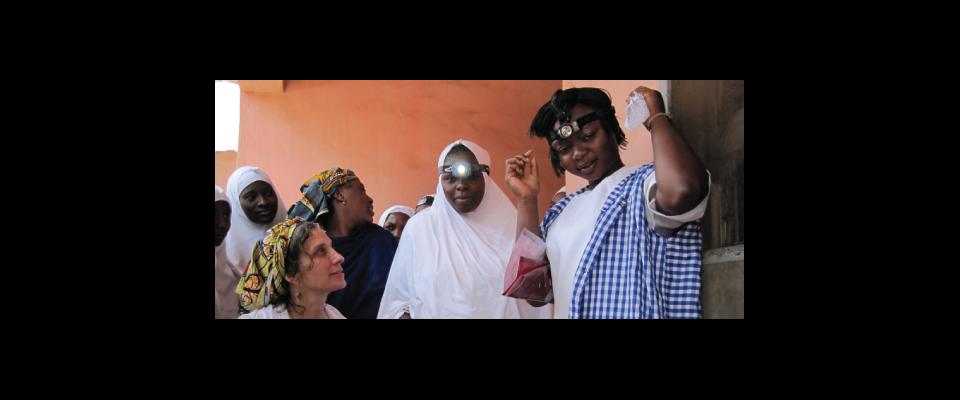When Laura Stachel was a practicing OB-GYN, she could take Western medicine’s up-to-date equipment for granted. As a doctoral student in public health, she discovered physicians in Nigeria doing Caesarians by flashlight.
Stachel’s medical degree was from UCSF. After 14 years in private practice, she decided to pursue an academic career in maternal and child health. She earned a master’s degree from Berkeley’s School of Public Health in 2006 and now is working toward a doctorate at the Bixby Center for Population, Health, and Sustainability.
The Bixby Center has a partnership with Ahmadu Bello University Teaching Hospital in northern Nigeria, a connection that led Stachel in March 2008 to Kofan Gayan Municipal Hospital in Zaria, a city in Kaduna State. “I spent a couple of weeks observing what was going on, and I was really struck by the conditions,” she recalled.
The contrast with Western medical facilities couldn’t have been more stark. She saw pregnant women hemorrhaging for hours while waiting to be seen by a doctor. There was no fail-safe way to summon doctors, because there were no land-line phones and cellular coverage was spotty. The hospital had no reliable electricity. Staffing levels and training were inadequate. “When I left Africa, I felt that I really wanted to do something to improve the infrastructure in the hospital,” she said.
The stopgap solution Stachel came up with was a maternity hospital in a suitcase: self-contained, portable solar-energy electricity, better lights, and rechargeable walkie-talkies for doctors. She recruited an interdisciplinary team of colleagues to help with the technical aspects. The aim, she said, was to “think of how this hospital could be independent of some of the larger problems in the region.”
To help finance her prototype, she entered the 2008 Big Ideas contest sponsored by Berkeley’s Center for Information Technology Research in the Interest of Society. Her project won an honorable mention and $1,000. It also attracted the attention of Tom Kalil, founder of Big Ideas @ Berkeley, who helped her get additional funds from Bears Breaking Boundaries and the Blum Center for Developing Economies. That money, combined with a grant from the Bixby Program, got her project up and running.
Stachel took the prototype to Nigeria in August 2008. “What I brought with me was sort of a miniature system of what I want to install in the hospital,” she said. The suitcase included portable solar panels; a storage battery; a charge controller, which regulates the power; receptacles for both AC and DC power; walkie-talkies; LED headlamps; and a sample light for the operating room. She called her project WE CARE—Women’s Emergency Communication and Reliable Electricity (Learn more).
The pilot project was a success. Stachel returned to Berkeley to assemble a permanent system. On a tight 10-day schedule last March, she oversaw the installation of solar panels, wiring, lights, electrical outlets, recharging equipment for the headlamps, an antenna, more efficient walkie-talkies, and a solar-powered blood bank refrigerator.
WE CARE continues to grow. Stachel has participated in significant conferences on safe motherhood, humanitarian technology, and solar energy. New York Times columnist Nicholas Kristof praised the project in his blog on the newspaper’s website. During the spring semester, four students at the Haas School of Business developed a business plan for WE CARE as a class project on social entrepreneurship.


















